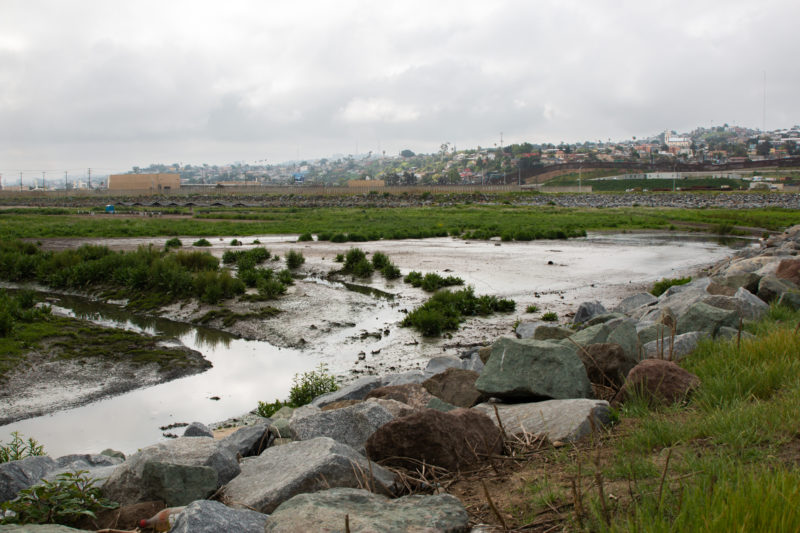
A pair of San Diego Congressional representatives are trying again to transfer money between the bank accounts of two federal agencies.
Without the legislative fix, most of $300 million worth of projects to clean-up the polluted Tijuana River and Southern California beaches cannot be spent.
Reps. Juan Vargas and Sara Jacobs are hopeful the full House and Senate will OK language introduced in a spending bill that’s passed a House committee, according to a Thursday press release.

As a nonprofit journalism organization, we depend on your support to fund more than 170 reporting projects every year on critical global and local issues. Donate any amount today to become a Pulitzer Center Champion and receive exclusive benefits!
“In 2019, my San Diego delegation colleagues and I secured $300 million to address the ongoing cross-border pollution in my district,” read a statement from Vargas in a press release Thursday. “I’m proud to have worked diligently to create a legislative solution that would allow the (International Boundary and Water Commission) to use these funds.”
Right now, that $300 million, granted by Congress under the U.S.-Mexico-Canada Agreement, is sitting in the U.S. Environmental Protection Agency’s bank account. But it needs to be paid-out to the International Boundary and Water Commission, a different federal agency that can make treaties between the two nations and manages an aging wastewater treatment plant in the Tijuana River Valley that’s in desperate need of repairs.
When Congress initially granted those funds, local San Diego communities were in the middle of suing IBWC, alleging the agency wasn’t doing enough to maintain water quality in the Tijuana River. But once Congress gave the EPA the authority and money to solve the problem, Californians paused their lawsuits – and eventually settled – and President Joe Biden appointed a new commissioner to the IBWC who has begun to rebuild trust with those communities.
Now, all of the involved parties acknowledge the $300 million has to go to the IBWC, because it’s the agency that builds and manages border water projects. The first project on the docket is to expand an undersized border water treatment plant in San Diego to clean more of Tijuana’s sewage.
But since IBWC is an international organization, Congress needs to pass legislation that explicitly allows the EPA to give the money to the IBWC. Sen. Dianne Feinstein tried to get it done in March of 2021 under a border water quality bill, but that never made it out of committee. Even Biden included the money transfer in his proposed 2023 budget.
In the meantime, lawyers at the EPA and IBWC pinpointed some powers under the Clean Water Act that would help. But that maneuver can only make it easier for the agencies to design the projects, not actually build them.
The House Appropriations Committee, which OKs requests for government spending across federal departments, approved the transfer in a State Department bill. Now, the entire House needs to vote on it.
Once that’s through, the U.S. Senate also needs to approve the transfer, but it has stalled there before.




